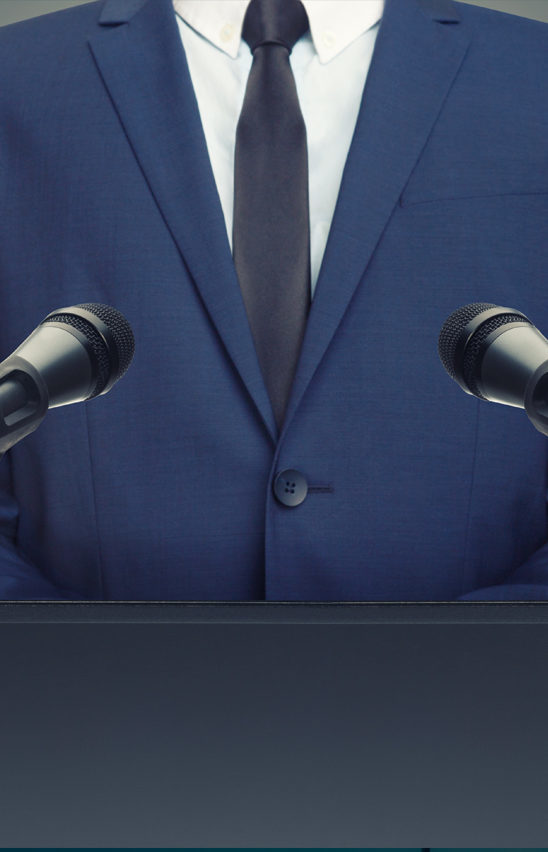
Of Marketing in Politics
First appeared in France in 1965 with the candidacy of Jean Lecanuet – nicknamed the “French Kennedy” –, political marketing has become, in a few decades, a vital tool at the service of any strategy of electoral conquest.
The current campaign for the 2017 presidential election gives a stark illustration of this phenomenon, as Emmanuel Macron and Marine Le Pen extensively used political marketing.
Indeed, the two candidates who triumphed in the first round were the ones that succeeded in imposing a new political brand: “En Marche !” (“On the Move!”) and “Marine”. Meanwhile, the two candidates of the traditional governing parties, selected as part of a “normal” election process – i.e. primaries –, were eliminated.
Emmanuel Macron created the “En Marche !” movement ex-nihilo, in April 2016, based on a conviction that a large part of the population was no longer identifying itself in the left-right divide that had dominated and determined the history of the Republic since 1965. He has built his movement by capitalising on two pillars: on the one hand, an original militant approach, relying on newcomers in politics and innovative initiatives such as the “questionnaire to the French” carried by his young “movers”; and on the other hand his image of a new, young, enthusiastic and dynamic candidate with a new way of doing politics, without however neglecting the weight of social networks or the contribution of the celebrity press, through the staging of his couple. Whatever the outcome of the election, Emmanuel Macron will have achieved an unprecedented performance: unknown to the general public two years ago he has reached, outside governing parties, the second round of a presidential election. From Jean-Jacques Servan-Schreiber to Charles Millon through Michel Jobert, all those who embarked in such an approach before him failed.
Marine Le Pen’s strategy is older and its result is the fruit of more than ten years of efforts, marked by a steady progression in all elections since 2008. It is clear that she has largely succeeded in “de-demonising” the Front National – the historical extreme right-wing party. The few reactions aroused by her qualification in the second round proved it clearly enough: she managed to overshadow the party’s founder’s cumbersome paternal figure. In 2002, Jean-Marie Le Pen’s second place in the first round of the presidential election created a shock and sparked the emergence of a “republican front”. Nearly a million people demonstrated to block the FN on May, 1. 80% of the second round voters rallied to Jacques Chirac and Jean-Marie Le Pen gained less than 4 points between the 2 rounds. It is certain that things will not be the same on May, 7! Meanwhile, the FN has gradually disappeared in favour of the “Marine” brand which is less divisive and more attractive.
On her campaign poster, no more reference to the FN, no more French flag, no mention of her last name. There is only “Marine”, and the brand is also reproduced in the colour of her outfit. A very active presence on social networks and – since last Monday as part of the second round campaign – a strategy of media ubiquity based on “shots” have completed this strategy.
For both candidates, what are highlighted are two personalities – in commercial marketing one would say “brand ambassadors” – more than the representatives of a party or a fortiori a program or an ambition for the country.
But this political marketing is likely to find its limits if the two candidates do not succeed, in the last days of the campaign, in convincing citizens that their respective brand serves an articulated and coherent program, and offers France a real recovery prospect. And as the survey published on Sunday, April 30 by the Journal du Dimanche shows, it is far from being done. Except for a quick improvement of the situation, after disappointing participation in the first round (77.77%) and at the end of a campaign like no other, it is the abstention that risks being elected “political phenomenon (product)” of the year 2017.
